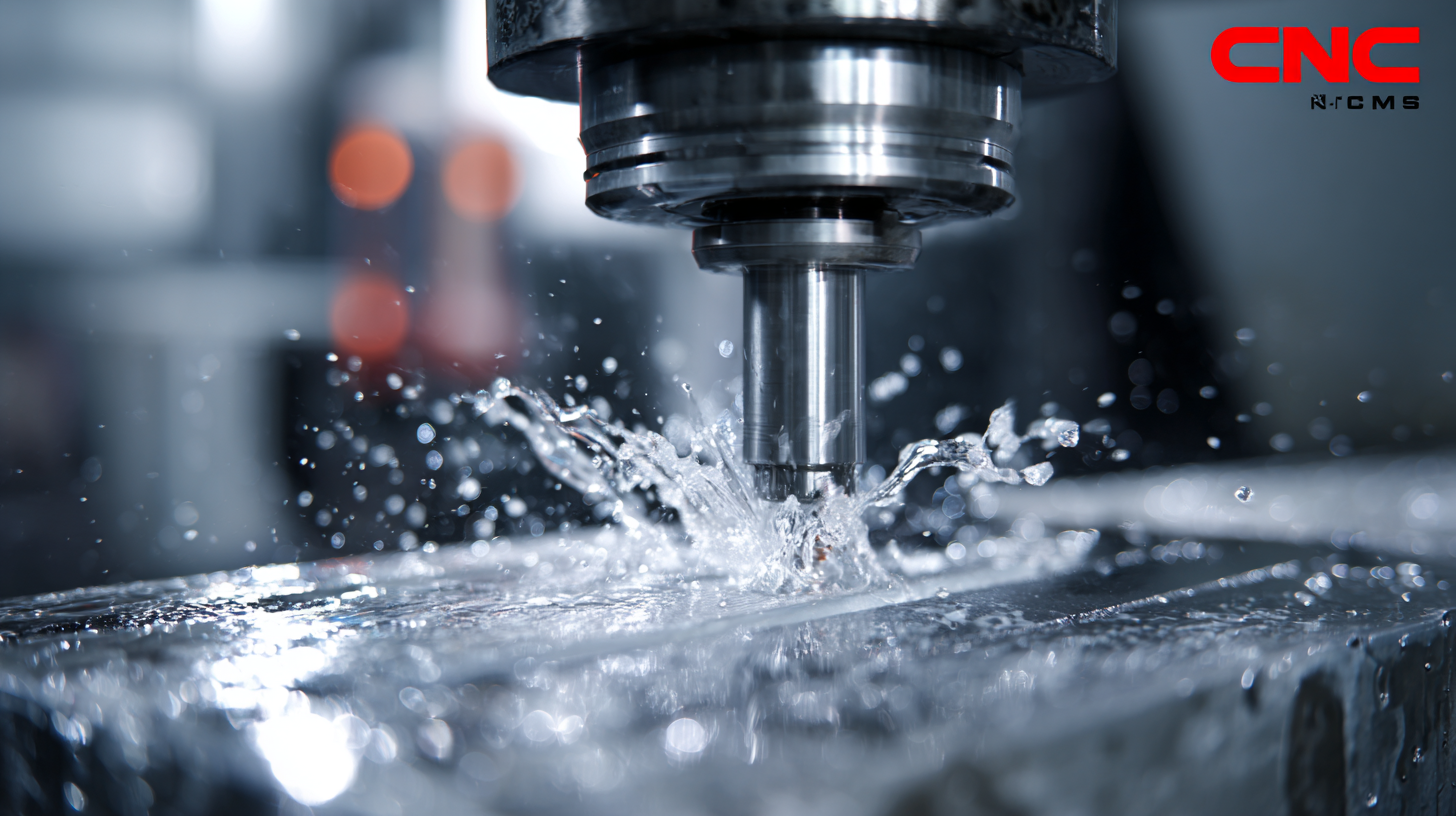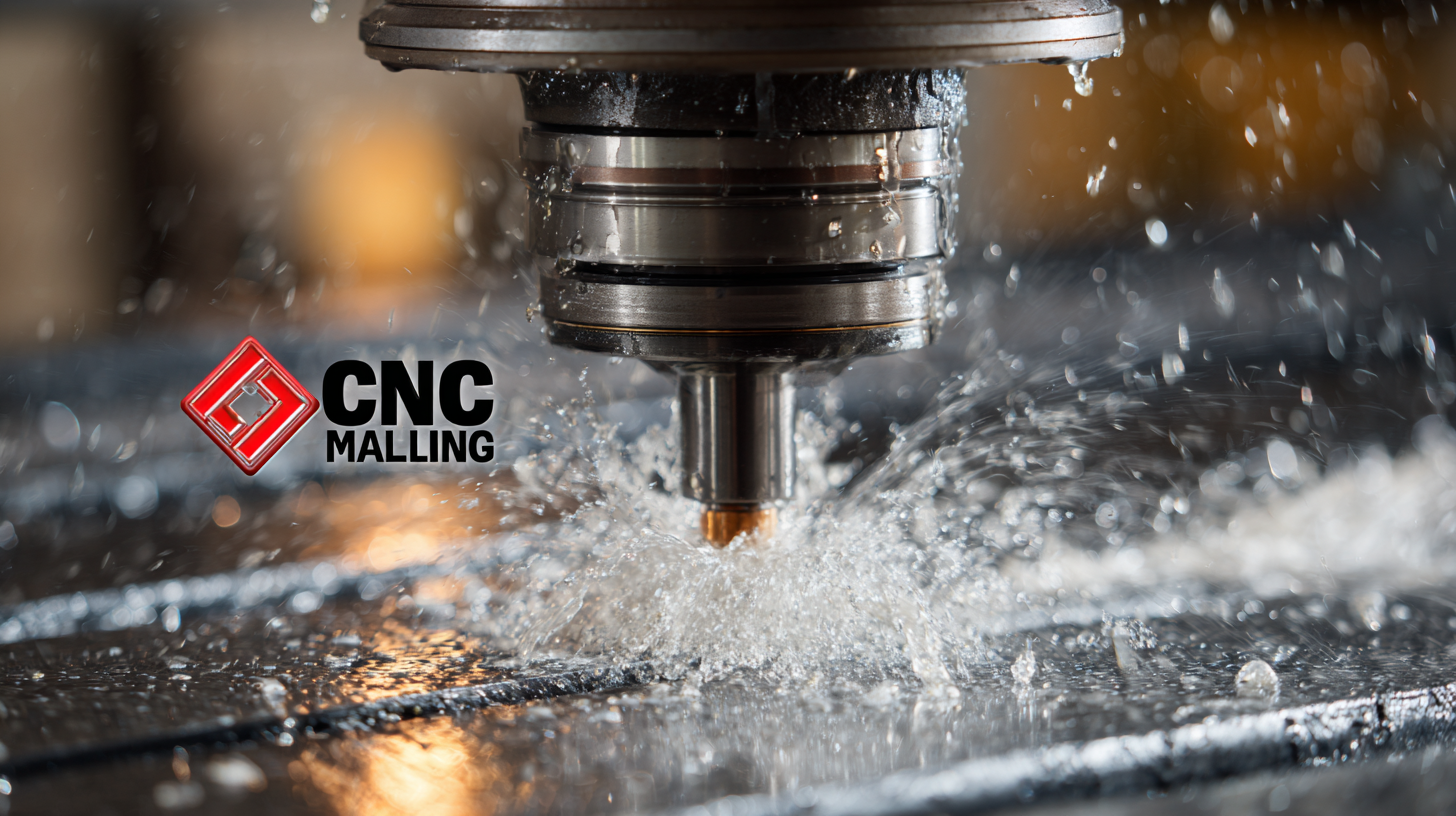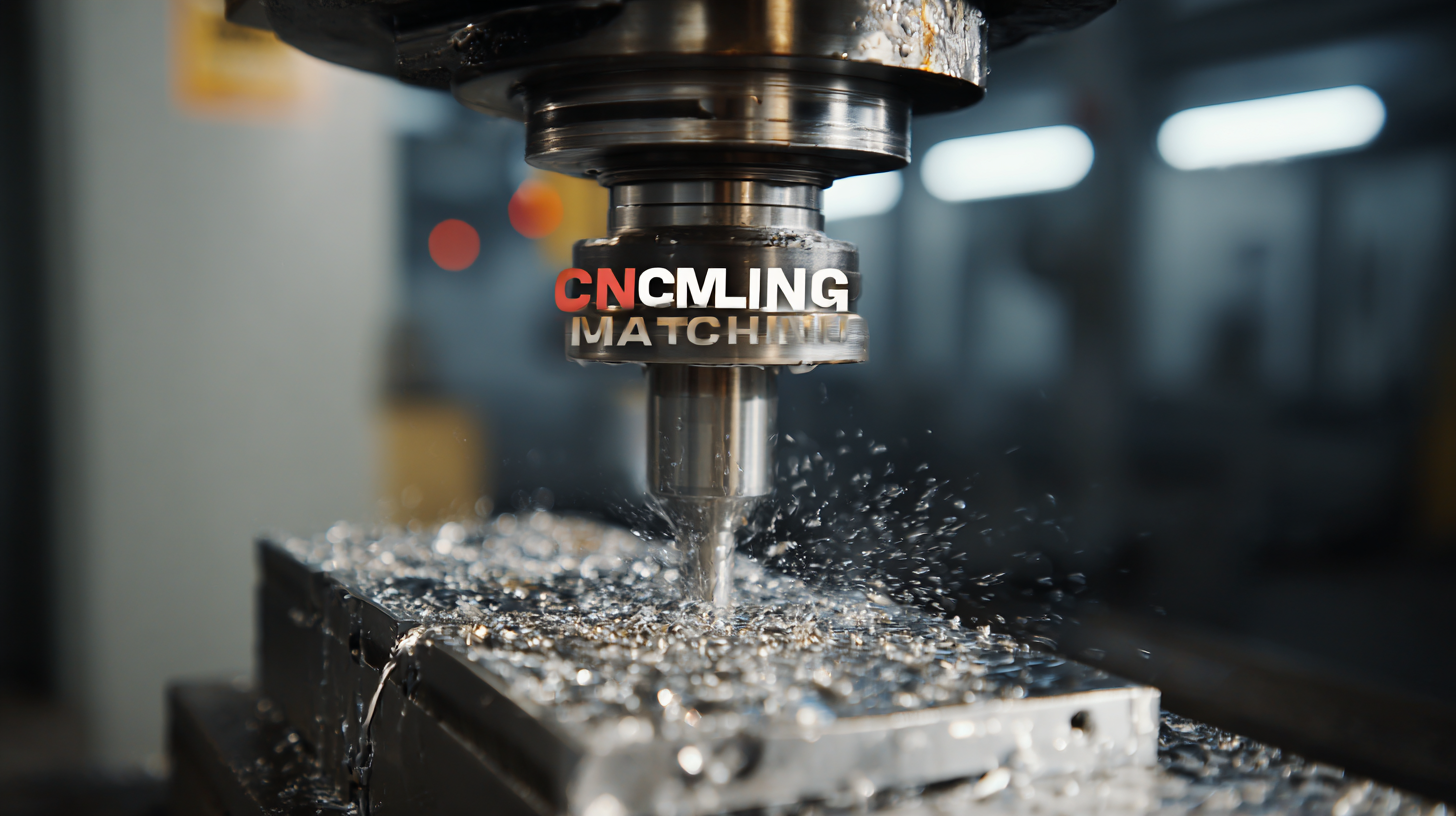Challenges Associated with Choosing the Best CNC Milling Machine for Your Needs
In the rapidly evolving landscape of manufacturing, the choice of a CNC milling machine has emerged as a critical factor that can significantly influence production efficiency and product quality. As reported by Allied Market Research, the global CNC machine market is projected to reach $100 billion by 2026, driven by increasing automation and demand for precision engineering. China, often referred to as the 'manufacturing powerhouse of the world,' dominates this sector, contributing to over 30% of the global market share.

However, selecting the right CNC milling machine can be fraught with challenges, including assessing specific production needs, budget constraints, and technological advancements. This blog will delve into the intricacies involved in choosing the best CNC milling machine tailored to your operational requirements, ensuring you remain competitive in this dynamic industry.
Understanding CNC Milling Machines: Key Features to Consider
When choosing the best CNC milling machine for your needs, understanding the key features is crucial. CNC milling machines come with various specifications that cater to different applications. For instance, consider the machine's spindle speed, feed rate, and the range of materials it can handle. These features will significantly impact the efficiency and quality of the parts you produce, especially in sectors like medical manufacturing, where precision is paramount.
**Tips:** First, assess the specific requirements of your projects—how intricate are the parts you'll be milling? This will guide your choice in terms of machine capabilities. Additionally, look for a machine with robust quality management system (QMS) procedures, particularly if you're in the medical field. This ensures compliance with standards like ISO 13485, which is essential for maintaining high-quality output.
Another important factor is the machine's software compatibility. A user-friendly interface and compatibility with modern CAD/CAM software can streamline your operation and reduce learning curves. Make sure to opt for a machine that also offers solid support and maintenance options, as this can save time and ensure your operations remain efficient.
Challenges Associated with Choosing the Best CNC Milling Machine for Your Needs
| Feature | Description | Considerations |
|---|---|---|
| Size and Weight | Physical dimensions and weight of the machine. | Ensure sufficient workspace and weight capacity. |
| Spindle Speed | The maximum speed at which the spindle can rotate. | Consider the materials to be machined and required precision. |
| Tool Capacity | Number of tools the machine can hold. | Evaluate the range of tooling required for your projects. |
| Axis Configuration | Number of axes available for operation. | Decide based on the complexity of the jobs to be done. |
| Control System | Type of software and interface for operation control. | Choose user-friendly systems that support your CAD/CAM software. |
| Price | Cost of the machine. | Balance budget constraints with required features and quality. |
| Maintenance Requirements | Regular upkeep and repairs needed. | Consider the availability of service and parts. |
Assessing Your Production Needs: Size, Material, and Precision Requirements
When selecting the best CNC milling machine for your specific needs, it's crucial to assess your production requirements carefully. One of the primary factors to consider is the size of the parts you intend to manufacture. Larger components might necessitate a machine with a more expansive work envelope, while smaller pieces could be efficiently produced on a compact model. Evaluating the dimensional constraints of your workspace is equally important, as you want to ensure that the machine can fit seamlessly into your production environment.
Material choice is another critical aspect to consider. Different CNC milling machines are designed to handle specific materials, such as metals, plastics, or composites. Understanding the properties of these materials will help you determine the spindle speed and cutting tools required for optimal performance. Additionally, precision requirements can significantly influence your decision. If your operation demands high tolerances and intricate designs, you may need to invest in a higher-end machine equipped with advanced technology that can deliver superior accuracy. By carefully evaluating these factors, you can ensure that you select a CNC milling machine that aligns perfectly with your production goals.
Budgeting for Quality: How Investment Impacts CNC Machine Longevity
When selecting the best CNC milling machine, budgeting is a critical aspect that directly influences the quality and longevity of the investment. According to a report from the International Association of Machinists and Aerospace Workers, high-quality CNC machines can outperform lower-cost alternatives significantly, with a longevity expectation of 10-15 years compared to just 5-7 years for budget models. This discrepancy is not just in terms of durability; higher-end machines often incorporate advanced technology and features that enhance precision and reduce operational costs over time.

Moreover, research by IBISWorld suggests that investing in a superior CNC machine can yield a return on investment (ROI) of up to 30% within the first few years of operation. Companies that opt for more robust machinery typically experience fewer breakdowns, leading to reduced downtime and maintenance expenses. Such machines provide better tolerances and more reliable output, which can drastically improve production efficiency. Therefore, while the initial outlay may be significant, the long-term savings and performance benefits make it imperative to budget wisely when choosing a CNC milling machine.
Navigating the Supply Chain: Sourcing CNC Machines from China
When sourcing CNC milling machines, navigating the supply chain is critical, particularly when considering options from China. The Electronic Manufacturing Services (EMS) industry in China has solidified its position as a cornerstone of global components supply, providing extensive capabilities that range from prototyping to mass production. According to recent analyses, China accounted for over 30% of the global EMS market share in 2022, driven by its robust infrastructure and skilled labor force. This presents both opportunities and challenges for manufacturers looking to optimize their production capabilities.
In addition to the advantages, sourcing CNC machines from China can be complicated by geopolitical factors and supply chain disruptions. The sanctions regime imposed on Russia has prompted other countries to reevaluate their supply relationships, which creates an environment of uncertainty. Manufacturers are increasingly seeking true partnerships with suppliers who can offer not only competitive pricing but also assurance of supply stability and quality. Reports indicate that businesses are prioritizing suppliers that can align with their long-term strategic goals, further emphasizing the need for a thorough evaluation of potential CNC machine partners amid these conditions.

Maintenance and Support: Ensuring Optimal Performance Post-Purchase
Selecting the right CNC milling machine for your operations is only the first step; the real challenge lies in ensuring its optimal performance through effective maintenance and support. Post-purchase, it’s crucial to establish a regular maintenance schedule that includes routine inspections, cleaning, and lubrication. This proactive approach not only extends the life of the machine but also helps in identifying potential issues before they escalate into costly repairs. Proper maintenance can significantly enhance precision and productivity, making it an essential part of your procurement strategy.
In addition to maintenance, having reliable support from the manufacturer or supplier is paramount. Understanding the warranty terms and available customer service options can provide peace of mind. Comprehensive support can range from user training sessions to troubleshooting assistance, ensuring that your team is fully equipped to handle the machine effectively. By investing time in training and maintaining open lines of communication with support teams, businesses can mitigate downtime and foster a more efficient production environment, ultimately leading to better returns on investment.
Challenges Associated with Choosing the Best CNC Milling Machine for Your Needs
This chart illustrates the common challenges faced when selecting the best CNC milling machine, focusing on maintenance and support needs that ensure optimal performance post-purchase.